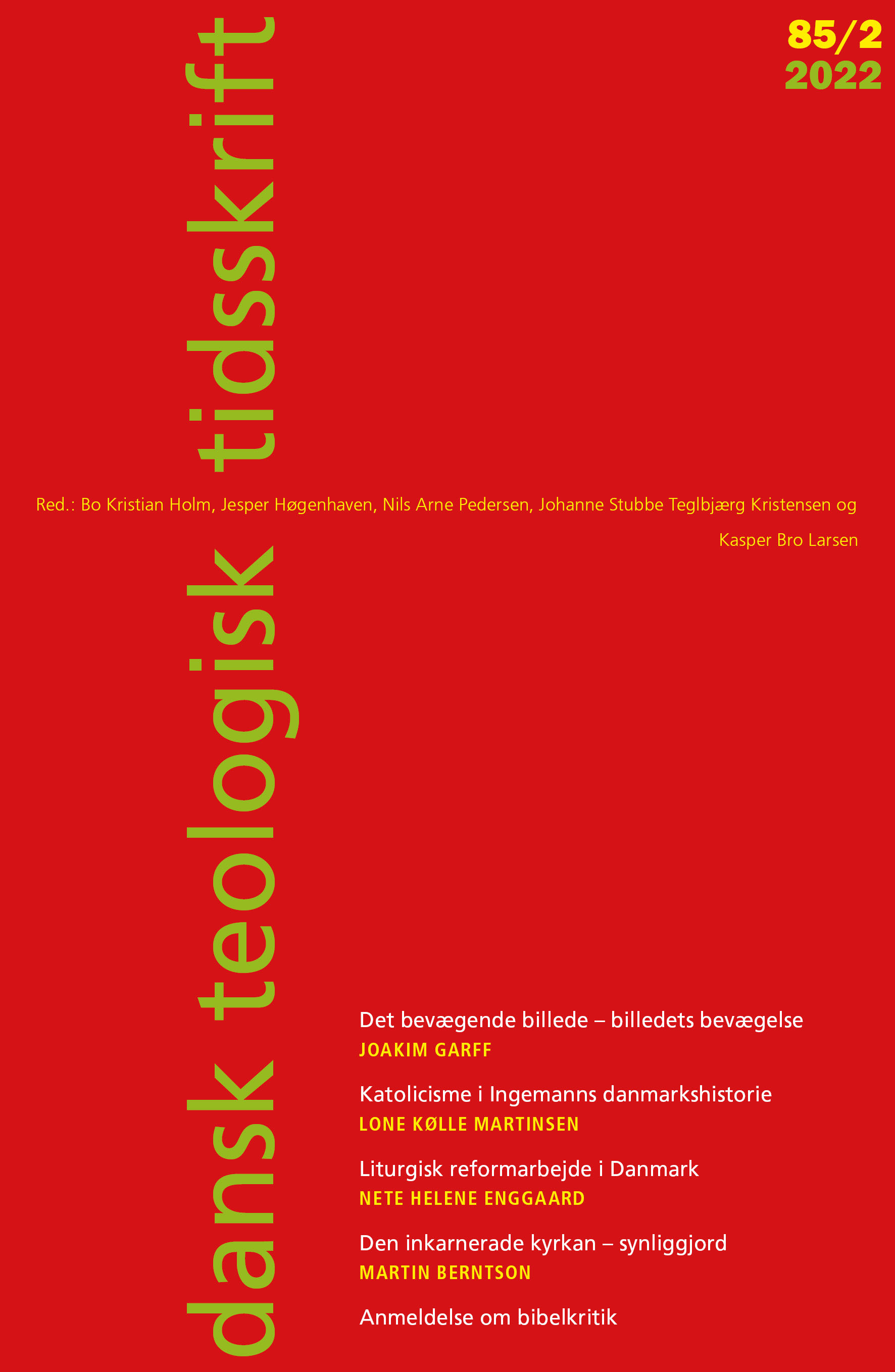Det bevægende billede – billedets bevægelse
Om retorikkens tidslighed i et par af Kierkegaards taler
DOI:
https://doi.org/10.7146/dtt.v85i2.134332Keywords:
Kierkegaard, close reading, rhetoric, images, textual dynamicAbstract
It takes time to get through Kierkegaard’s edifying discourses, not because philosophical and theological terminology complicates appropriation, as is the case with the pseudonymous works, but rather because of their rhetorical complexity. This is due, in turn, to the fact that the discourses ought to be read slowly. The reader is thereby exposed to time, experiences time, which is what the discourses are about. In each text, the rhetoric is not just a meaningful dimension, but also a part of the meaning. The text’s images are emotively moving, but they also move before the eyes of the reader, who is drawn into the movement and is transformed by it.
References
Fürstenberg, Henrike. 2017a. Entweder ästhetisch oder religiös. Søren Kierkegaard textanalytisch. Kierkegaard Studies. Monograph Series 34, Berlin / Boston: de Gruyter.
Fürstenberg, Henrike. 2017b. “Re-reading the Religious – Aesthetically: A Literary Analysis of ‘The Woman Who Was a Sinner’ and The Lily in the Field and the Bird of the Air.” Kierkegaard Studies: Yearbook 2017. Berlin / New York: Verlag Walter de Gruyter. 145-173.
Garff, Joakim. 2006. “Kierkegaards billeddannelsesroman – om at mime det sublime.” I Geni og apostel. Litteratur og teologi. Tilegnet Doris Ottesen på 60-års dagen, red. David Bugge. København: Anis. 11-27.
Grøn, Arne. 2000. “Temporality in Kierkegaard’s Edifying Discourses”. Kierkegaard Studies: Yearbook 2000. Berlin / New York: de Gruyter. 191-204.
Hughes, Carl S. 2014. Kierkegaard and the Staging of Desire. Rhetoric and Performance in a Theology of Eros. New York: Fordham University Press.
Kierkegaard, Søren. 1997-2012. Søren Kierkegaards Skrifter (forkortet: SKS efterfulgt af bindnummer og sidetal), udg. af Niels Jørgen Cappelørn, Joakim Garff, Anne Mette Hansen, Johnny Kondrup m.fl., bd. 1-55. København: Gads Forlag; her citeret efter den elektroniske version: www.sks.dk
Otto, Rudolf. 1917. Das Heilige. Über das irrationale in der Idee des Göttlichen und sein Verhältnis zum Rationalen. Breslau: Trewendt & Granier.
Walsh, Silvia. 2010. “Comparing Genres: The Woman Who Was a Sinner in Kierkegaard’s Three Discourses at the Communion on Fridays and An Upbuilding Discourse”. Kierkegaard Studies: Yearbook 2010. Berlin / New York: de Gruyter. 71-90.





